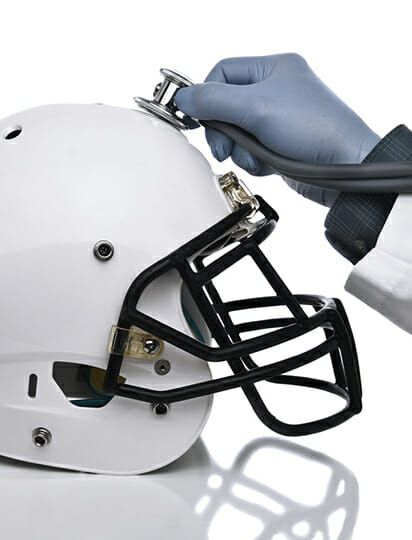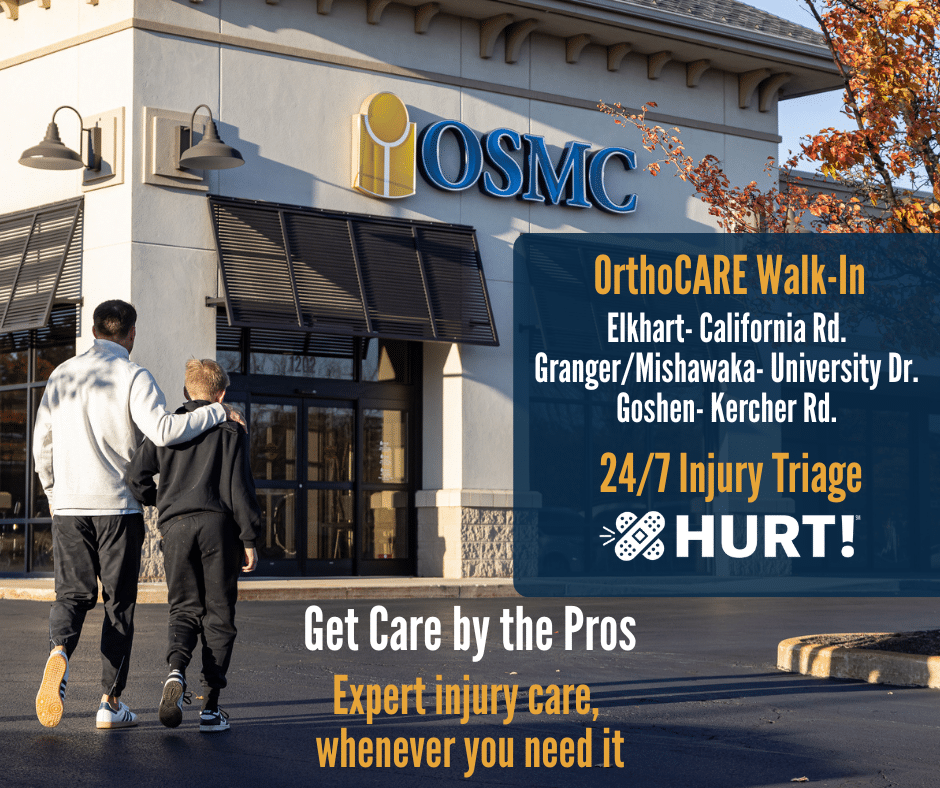Orthopedic Concussion Clinic in Northern Indiana
OSMC Concussion Specialist in Elkhart, IN
Orthopedists specialize in the musculoskeletal system, focusing on bones, joints, muscles, ligaments, and tendons. While concussions primarily involve brain injury rather than orthopedic structures, our board-certified orthopedic specialists offer comprehensive care of concussions, particularly in cases with associated musculoskeletal injuries or when collaborating with other medical specialists. Our expert Orthopedic & Sports Medicine Center staff offer specialized concussion care in the Elkhart, IN, region.
Seek medical attention if you’ve suffered any head trauma or expect you have a concussion: If you suspect you've experienced a concussion, especially after a blow to the head, it's crucial to seek medical attention promptly. Even if symptoms seem mild initially, they can worsen over time, and early evaluation and management can prevent complications.
Sports Medicine Concussion Services with OSMC
At OSMC, our sports medicine providers play a crucial role in the assessment, diagnosis, and management of concussions, particularly in athletes.
Evaluation and Diagnosis: Sports medicine physicians are trained to recognize the signs and symptoms of concussions. They conduct comprehensive assessments, including a detailed medical history, neurological examination, and cognitive assessments.
Medical Management: Sports medicine physicians guide the appropriate management of concussions based on the severity of symptoms and individual patient factors. This may involve physical and cognitive rest to allow the brain to heal.
Monitoring and Follow-up: Sports medicine physicians monitor patients' progress throughout recovery, conducting regular follow-up appointments to assess symptom resolution and cognitive function. They may recommend additional testing or refer patients to specialists if needed.
Return-to-Play Protocol: Sports medicine physicians determine when it is safe for athletes to return to sports activities following a concussion. They follow established return-to-play protocols, which typically involve a stepwise progression of exertion and monitoring for any recurrence of symptoms.
Education and Prevention: Our OSMC concussion providers are also concussion educators, informing athletes, coaches, parents, and even other doctors. They teach concussion signs, prevention, and when to seek medical help. They might even push for safer rules or equipment.
Collaboration with Specialists: In cases of complex or severe concussions, our Orthopedic and Sports medicine team will collaborate with other healthcare professionals, such as neurologists, neuropsychologists, or physical therapists, to ensure comprehensive care. They may refer patients to these specialists for further evaluation or treatment.
OSMC Concussion Specialists in Elkhart, IN
Orthopedic & Sports Medicine Center (OSMC) in Elkhart, IN, our dedicated team of board-certified orthopedic specialists offers comprehensive concussion care, addressing this complex injury's orthopedic and neurological aspects. While concussions primarily involve brain trauma, our expertise in musculoskeletal medicine allows us to provide specialized care, particularly in cases where orthopedic injuries accompany concussions.
Whether you're an athlete, parent, coach, or healthcare provider, you can trust OSMC for expert concussion care and support in Elkhart, IN. Your safety and well-being are our top priorities, and we're here to help you safely and confidently get back to doing what you love, call (574) 319-7082.

If you or a loved one plays sports, you’ll want to ask us about our ImPACT concussion management system. You can call OSMC in northcentral Indiana at (574) 264-0791. Our sports medicine physicians are trained to accurately evaluate for concussions and can help determine when it’s safe for your athlete to safely return to play.



